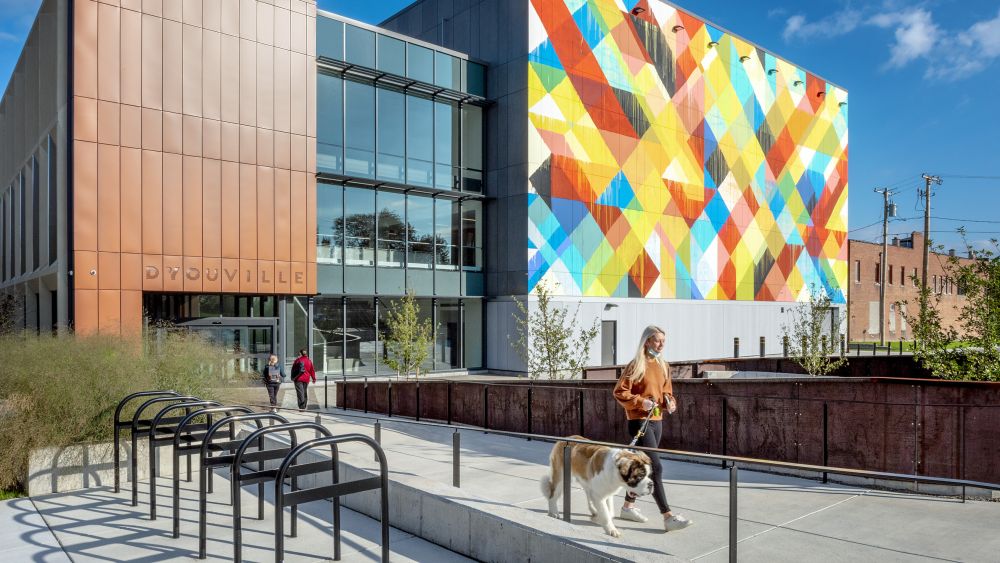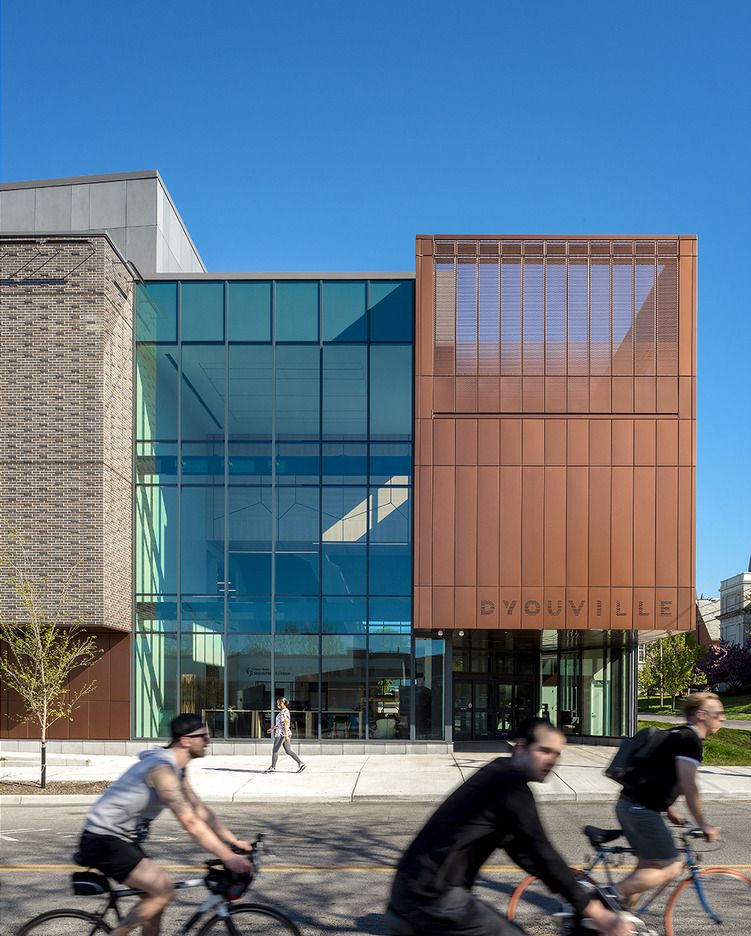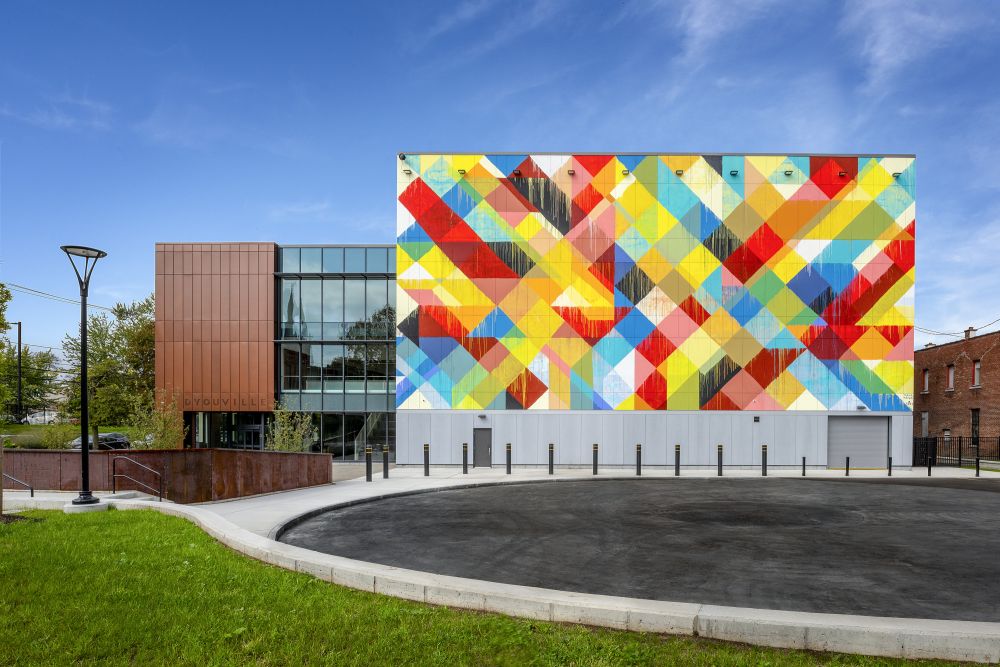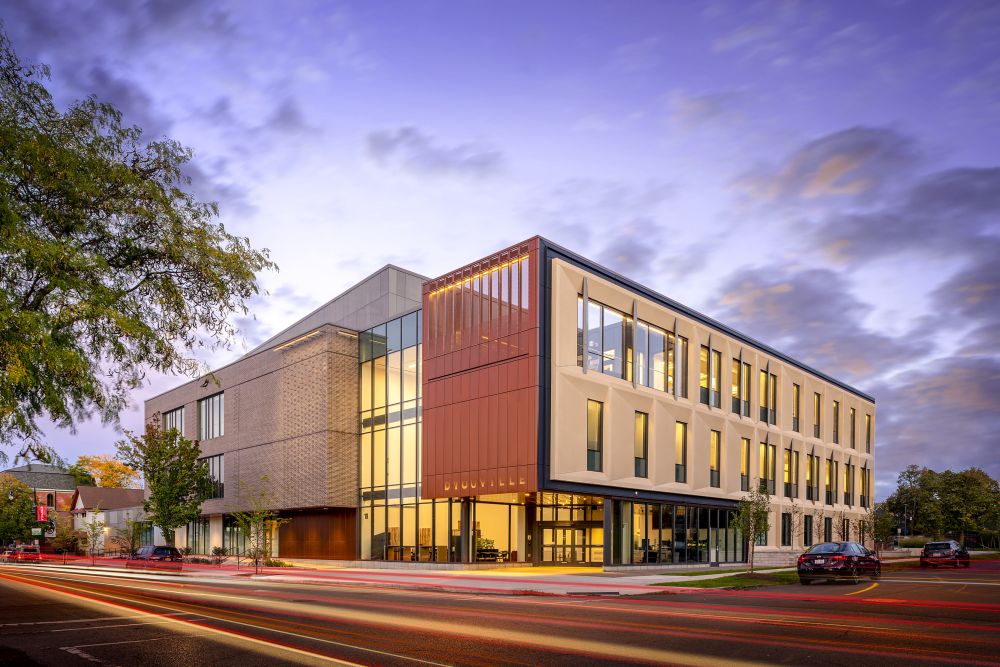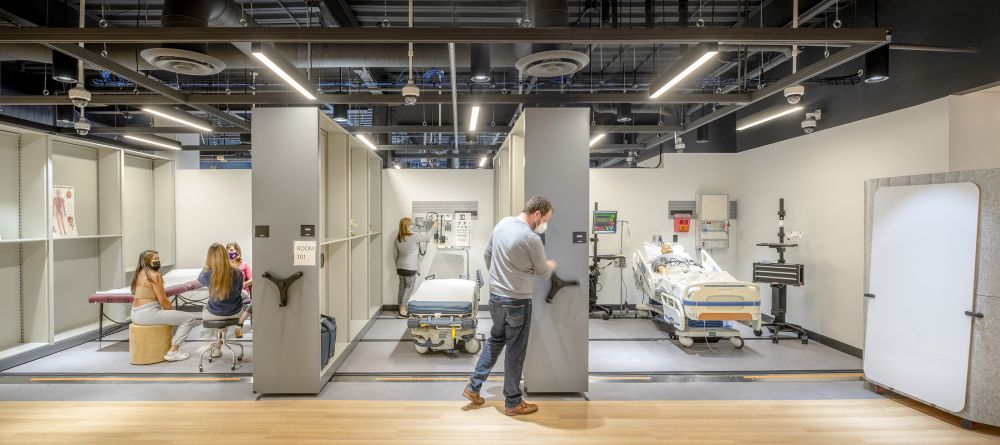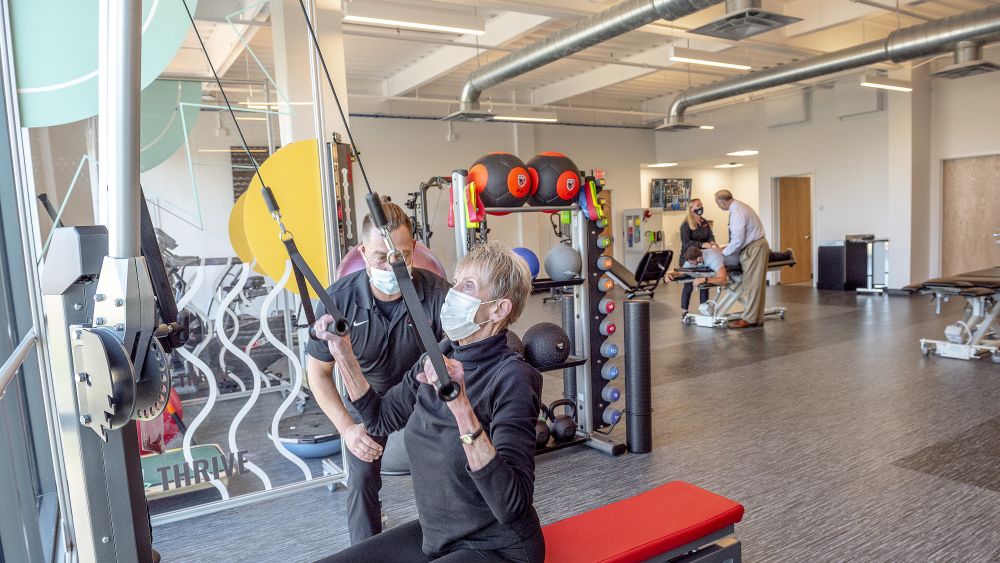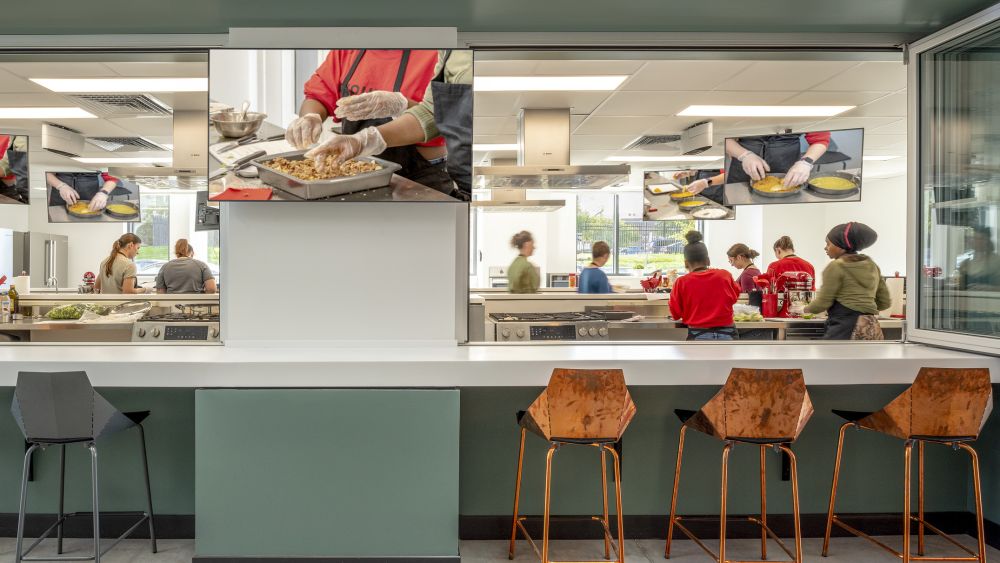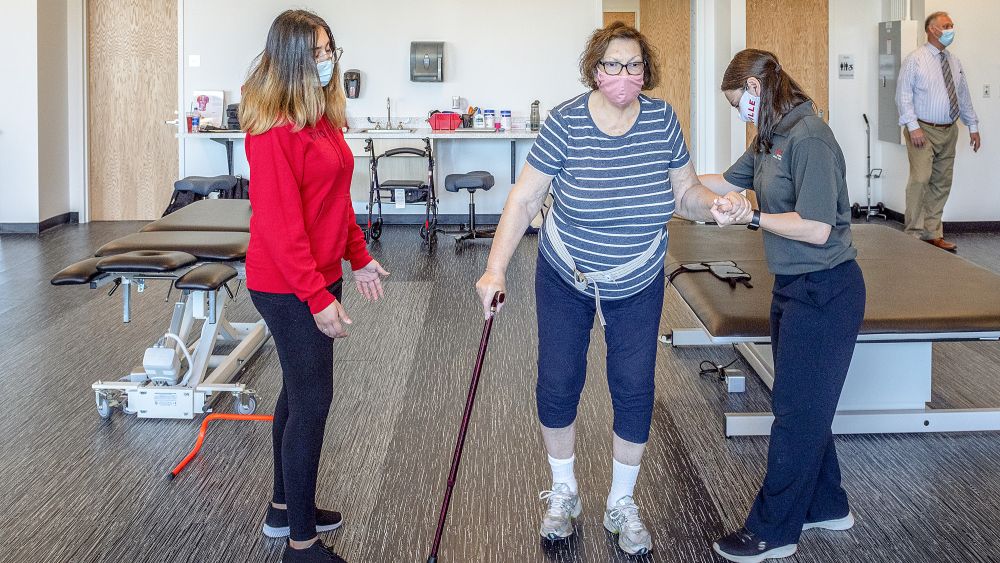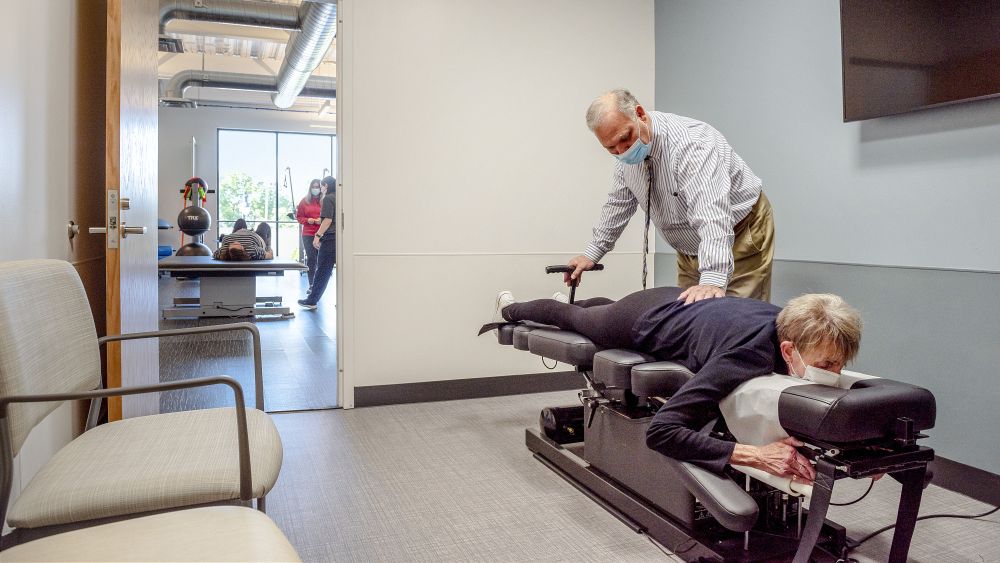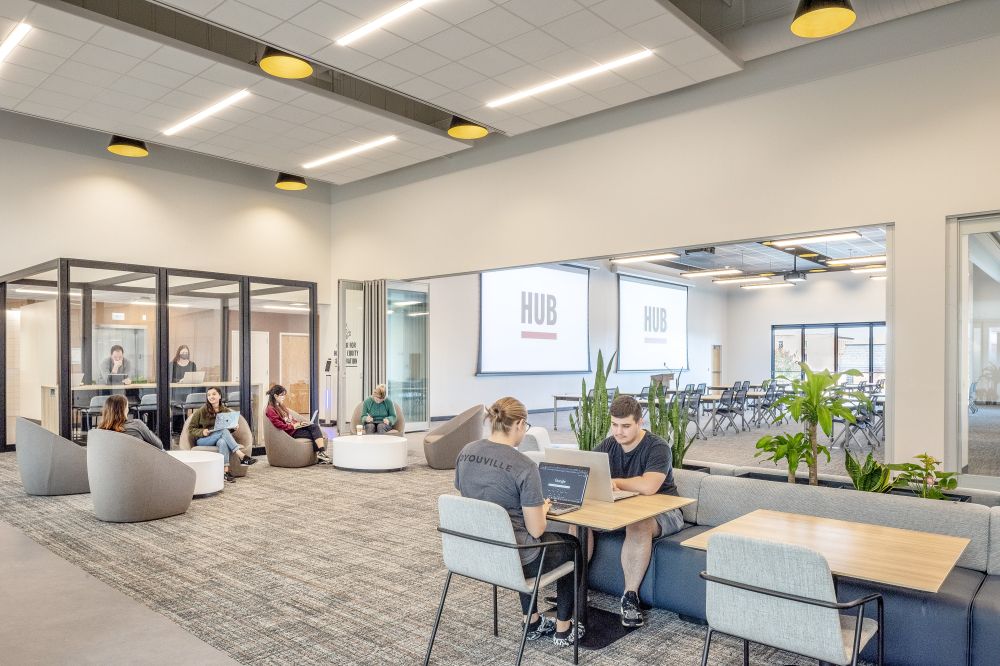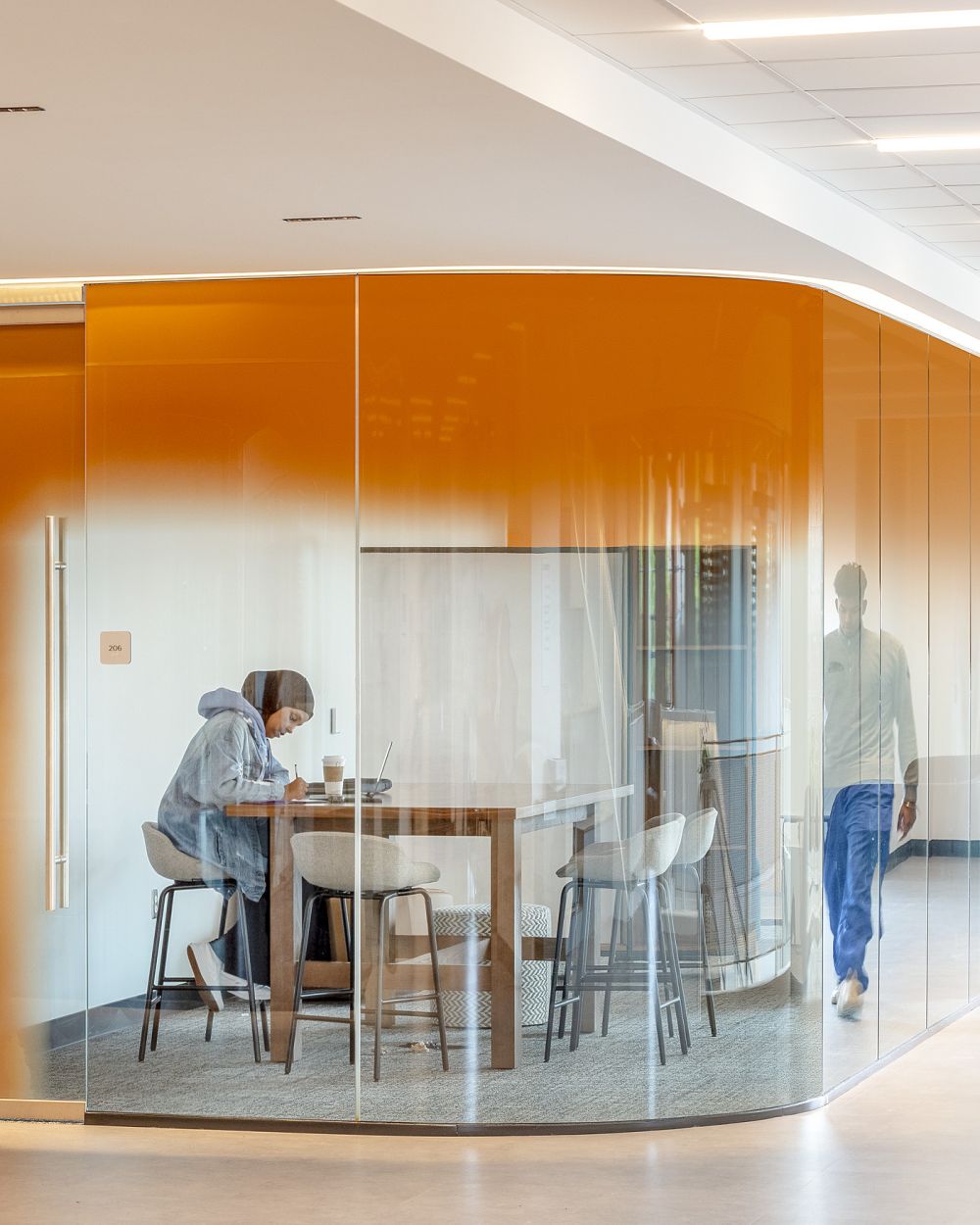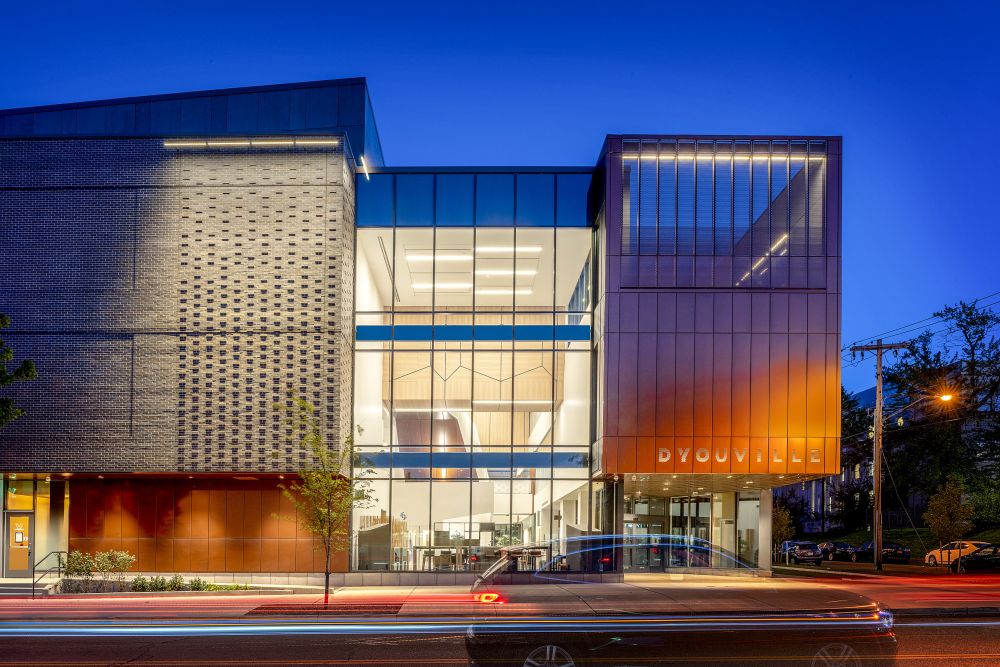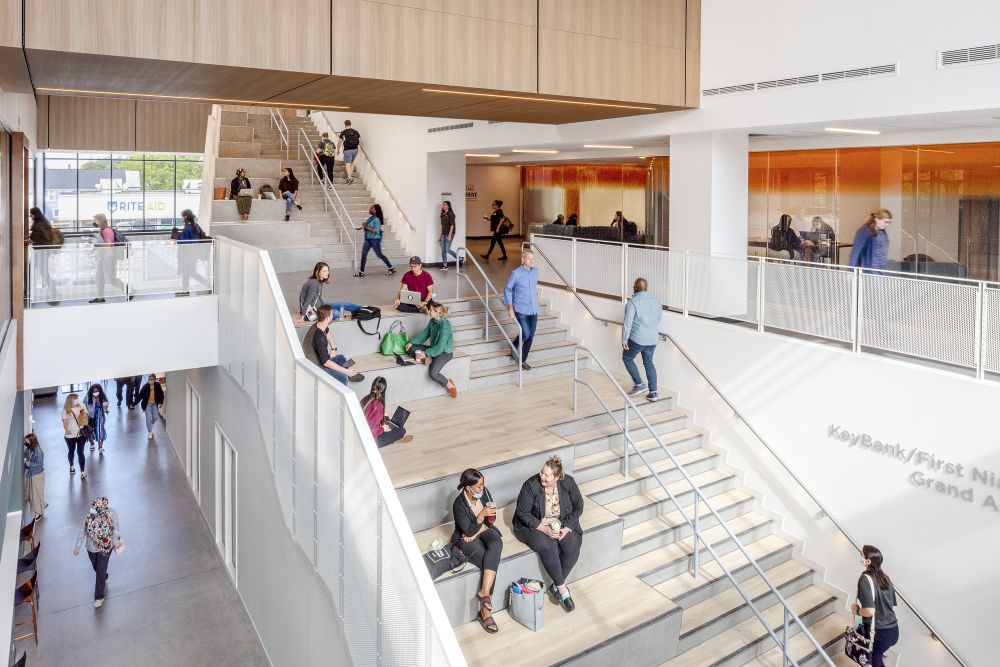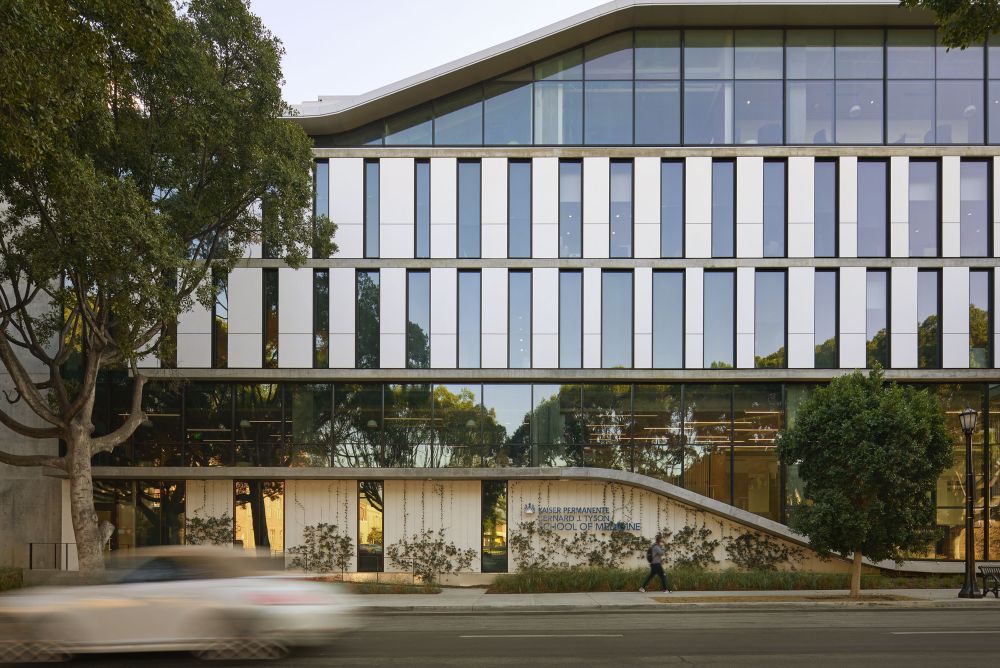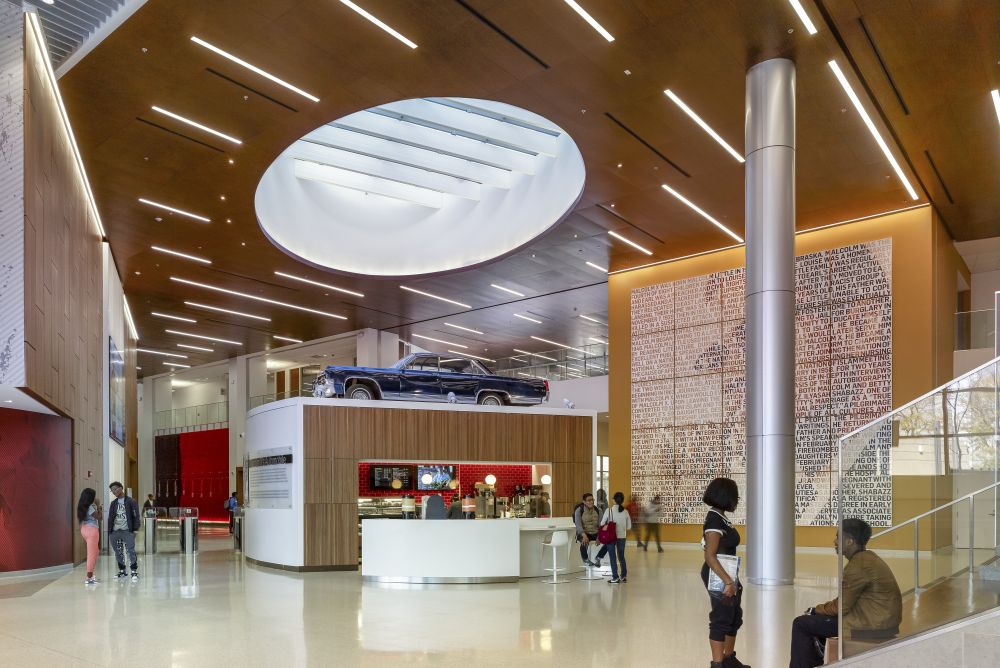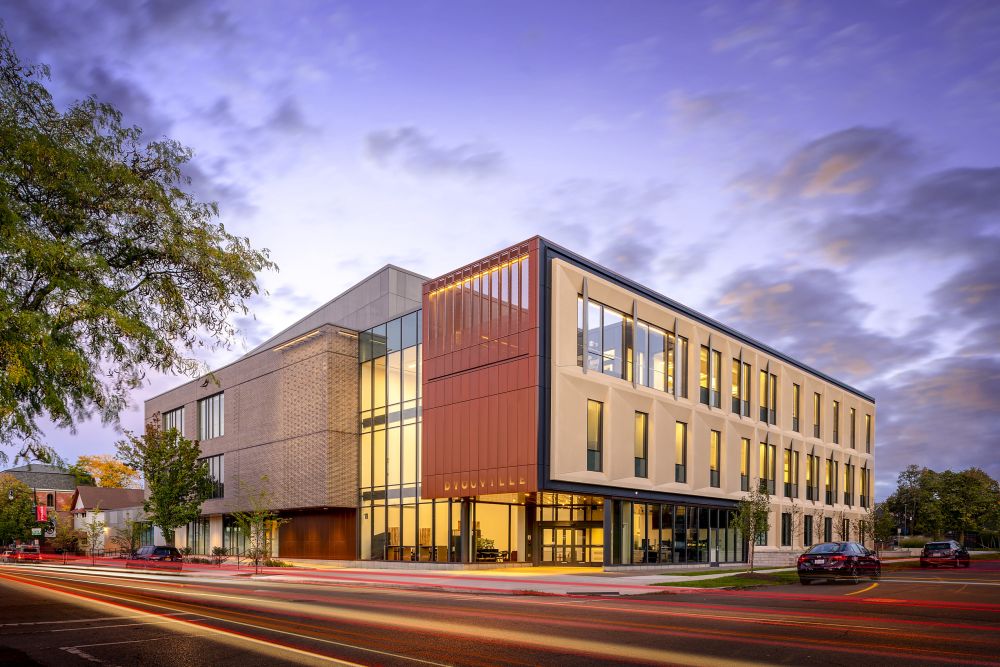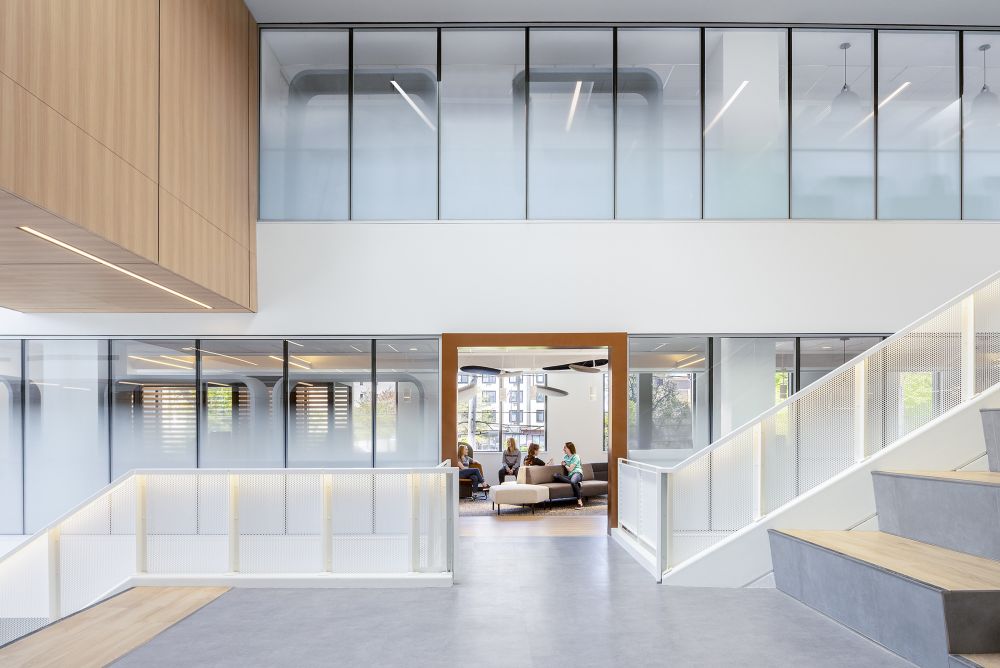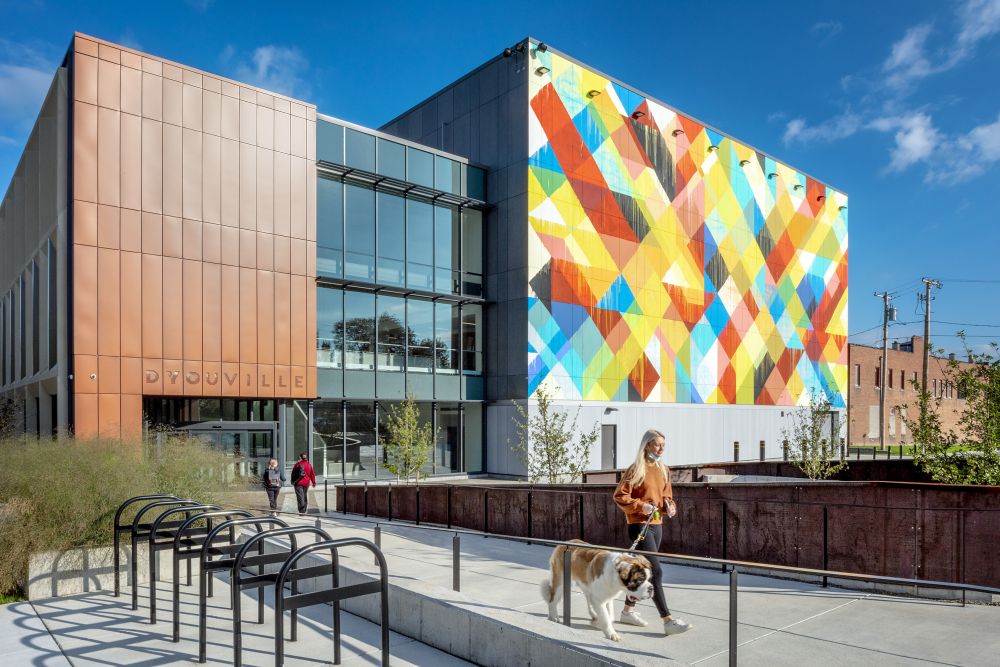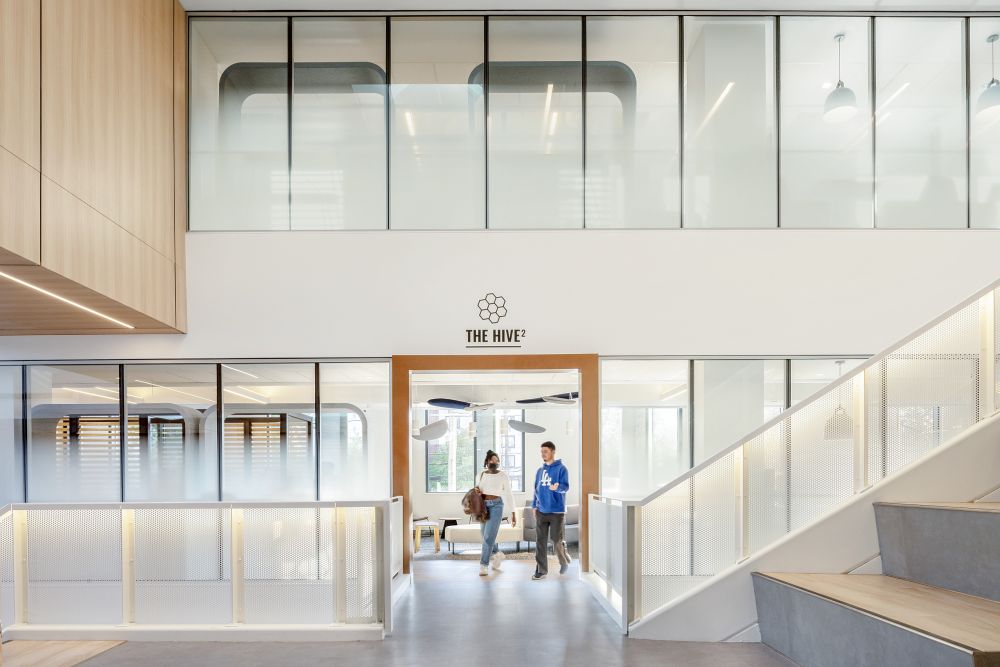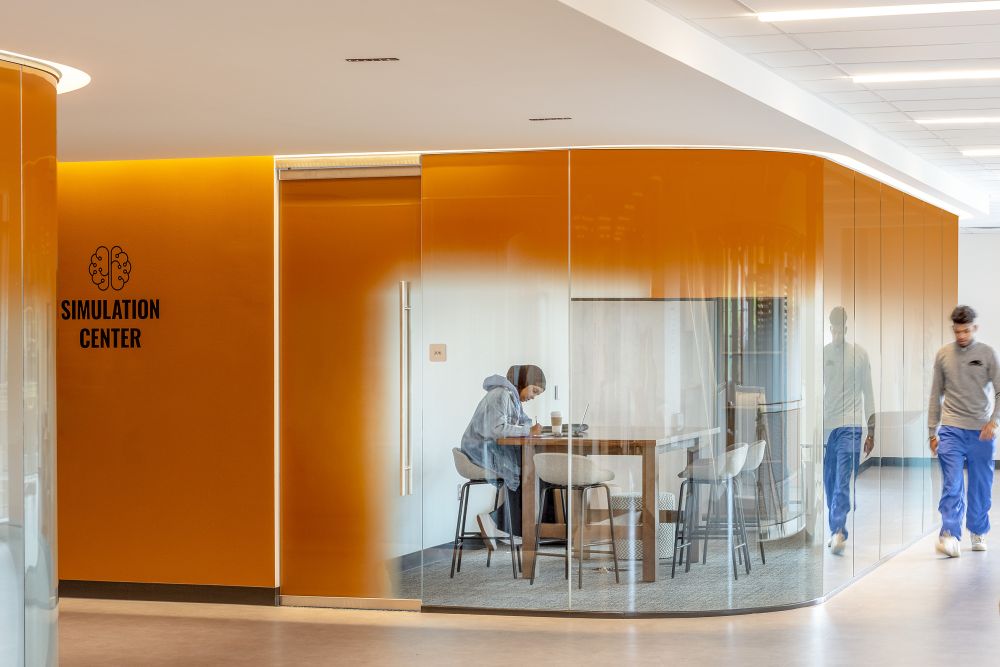Health Professions Hub
Delivering health, hope and optimism to Buffalo’s West Side
- Client
- D'Youville University
- Location
- Buffalo, New York, United States
- Size
- 59,600 square feet
- Status
- Completed
D’Youville University’s Health Professions Hub is a medical education space positively reshaping the campus, the City of Buffalo, families and individual lives, today and in the decades to come. The city’s West Side community, rich with immigrants and refugees, is woefully underserved and faces complex challenges around limited access to care and prevalent poverty and food insecurity. Concurrently, the region anticipates a critical shortage of healthcare professionals in excess of 10,000 by 2024.
The Health Profession Hub converts these challenges into opportunity as a first-of-its-kind health center featuring innovative learning spaces, a workforce center, extensive virtual training resources, and a clinic offering primary care, rehabilitation medicine, nutrition, nursing, pharmacy and more. All at once, the building improves community access to healthcare services, introduces educational opportunities focused on breaking the cycle of chronic illness, prepares a new workforce to seize in-demand healthcare jobs, and supports a living-wage ecosystem for Buffalo’s West Side residents.
An enthusiastic welcome to the community
Architecturally speaking, the Health Professionals Hub signals a new chapter for the campus. Historically, the D’Youville's campus architecture and layout was remarkably “introverted” and physically closed to the surrounding community. The Hub is the exact inverse, with intentional siting and orientation that effectively transforms the campus by opening it up to its surrounding community more than ever before.
Healthcare and education resources in the building are designed to directly benefit Buffalo’s West Side community members and they were informed through extensive community engagement. Portions of the clinical components of the building were even accelerated to help residents during the early stages of the pandemic.
High-activity zones in the building are located on its exterior—with extensive windows and natural daylighting—to essentially put learning on display for the community. There are also dedicated spaces for community members to gather immediately outside the building.
Testimonials
A DNA of wellness
The Hub’s success will be measured by the lives changed. Not only does the facility allow students to train for upwardly mobile careers that will change the trajectory of their lives, but it is also designed to help improve health outcomes for all within its reach.
The building is a medical education center designed to support cross-disciplinary education. From physical therapy to nutrition and dietetics, customized training areas allow students and health professionals from myriad disciplines learn, connect and collaborate on specialized medical solutions.
With top floors reserved for training and simulation, and lower floors home to external clinical services, the building offers a non-traditional learning cycle that is ever impactful. With many students who train at the Hub being residents of Buffalo’s West Side, the building provides an opportunity for their work to directly benefit their friends and families.
Collaborative design drives results
CannonDesign, in partnership with Blue Cottage of CannonDesign, worked to translate the university's vision for the building to be an integral part of the community and serve as a workforce development arm. The collaboration informed a strategy and program that empowers community members to strengthen their well-being through an integrated ecosystem of education, healthcare and workspaces, and creates opportunities for students to learn and practice their skills in simulated real-life scenarios.
Our Blue Cottage team led an approach that was both quantitative and qualitative, incorporating stakeholder visioning, leadership interviews, evaluation and analysis, and recommendations on campus infrastructure and facilities. Among several key outcomes, the research and assessment informed the development of the Hub’s Interprofessional Simulation Center, a technologically advanced learning space that supports simulation curricula for several health profession degree programs. This unique typology is a critical tool for developing communication skills, clinical reasoning and critical thinking—thereby facilitating training that has the potential to improve patient outcomes exponentially.
The Hub empowers D'Youville to graduate four times as many health professionals annually, helping address the region's health worker shortage.
